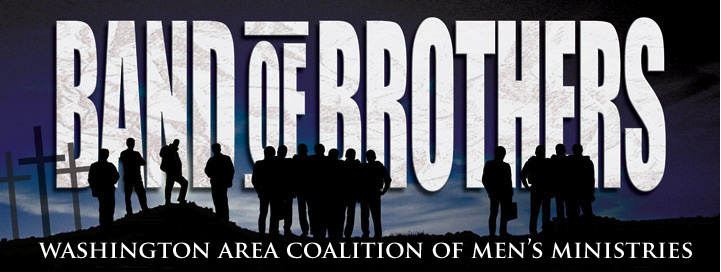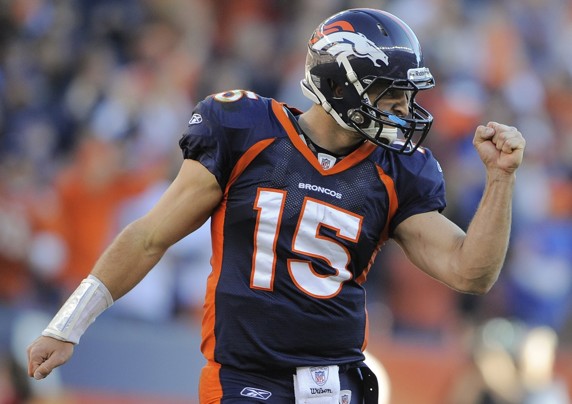

"You hold your breath when you take an assignment like this and say, ‘I hope I’m not writing about a guy who’s a scalawag,’” Whitaker said.
After a long day of initial interviews, Whitaker and the Tebow family — including father Bob and brothers Robby and Peter — and a couple of friends sat around the dining table, discussing what to do next. It wasn’t long before everyone grabbed a flashlight and an impromptu game of hide-and-seek broke out. Among adults. In the pitch dark.
“It was like a sleepover almost. ‘What do you guys want to do now?’ It was that type of atmosphere,” Whitaker said. “They were just having fun. That’s part of why it was so refreshing to be around him.”
At one point, Whitaker’s wife sent a text message. “Not now,” he wrote back. He called later to explain: “Sorry, I was hiding in the shower and the whole room lit up when my phone buzzed.”
“What? You were in Tim’s shower?
“No, no, no,” Whitaker explained. “I was in Peter’s shower.”
Hiding in plain sight Tebow is not hiding. His public persona might appear more like a pencil sketch than an oil painting, but that’s not necessarily Tebow’s doing. In fact, he probably couldn’t disguise his feelings if he tried. Those who know him say the 24-year-old Tebow is the same behind closed doors as he is in front of cameras.
“Everything you see is true,” said Urban Meyer, his coach at the University of Florida.
On Friday, the Broncos had just finished their final practice before Sunday’s playoff game. For Tebow
, it will be another pressure-packed affair where every errant throw and each impressive run will inspire a definitive verdict from the football world.
Tebow walked toward the shower, wearing just a white towel around his waist, and his teammates accused the pious player of using a curse word during practice. They were joking, but it wasn’t clear if Tebow understood.
“I promise,” he said, lifting his arms incredulously, “I did not say that!”
That’s not how Tebow was raised, not the image he tries to project and not the person he is. Born in the Philippines and raised in Jacksonville, Fla., Tebow grew up on a farm, the youngest of five. He had no television at home, gave up soft drinks at a young age, memorized Bible verses and played every sport possible.
An incredible talent, it wasn’t until this season — his second in the NFL — that his celebrity really surpassed his skills. He’s more like a young pop star than anything the NFL has seen in many years. While the marketing image of iconic athletes usually is carefully crafted, put before focus groups and treated like a brand, Tebow’s grew organically.
This season he had the league’s second-best selling jersey and 27th-best passer rating. According to Florida’s Bureau of Vital Statistics, from 2000 to 2007, no children born in his home state were given the first name “Tebow.” Since 2008, there have been eight.
His star has dimmed in Denver as the Broncos closed the season with three losses and backed their way into the postseason, and he enters Sunday’s playoff game against the Pittsburgh Steelers facing an uncertain future. Play poorly again — he was 6 of 22 passing for only 60 yards in Denver’s season finale — and who knows when he’ll start another game in the NFL? The team has nothing definitive to say about its plans for Tebow beyond Sunday‘s game.
“People ask that all the time,” said Denver Coach John Fox. “We like him. We think he has a future here. We will continue to work with him. I think he is improving every week. I learned a long time ago that the future is now in this league.”
Sunday’s contest is the kind of game Tebow relishes. He responds to pressure. He won two national championships at Florida. Five of his seven victories this season were come-from-behind wins.
“I love playing in big games,” he said.
Regardless, it will be another chance for Tebow to step on the big stage and showcase not just his football skills, but himself. He knew from a young age his calling wasn’t to simply throw a ball.
“It’s unfortunate so many people think, ‘Oh, because I score touchdowns or play this game, I’m doing something important,’” Tebow said. “No, I’m playing a game. But I think what you can do with that platform can be very important. Hopefully that’s something that I take advantage of, the platform that football has given me to make a difference.”
Doubters everywhere
The doubters were always there. In fact, many of those who now count themselves as Tebow’s most devout believers didn’t necessarily start that way.
Tebow transferred to Nease High in Ponte Vedra, Fla., after his freshman year. His previous school played him at linebacker, but he wanted to be a quarterback. Nease had a new coach who didn’t know what to do with his new player, who was bigger and stronger than any lineman. They broke from their first spring practice and the coaches went indoors to chat.
“Two and a half hours passed and when I came out, it was getting dark,” said Craig Howard, Tebow’s high school coach. “It was misty, raining, and someone was still out there on the practice field.”
Tebow was throwing a variety of routes, tossing a ball, walking to pick it up and throwing it again. Over and over.
“I told our coaches, ‘This is the hardest working kid I’ve ever seen in my life. We’re going to have a heck of a team next year,” said Howard, now the coach at Southern Oregon University.
Tebow helped Nease win a state championship and was one of the hottest recruits Florida had seen, with 70-some scholarship offers. By the time Meyer took the Gators’ coaching job in 2005, no one had to brief him on Tebow.
“It was being jammed down my throat from the minute I stepped on the runway and arrived in Gainesville,” he said. “I was probably like the rest of the country.I watched some videotape, I had some concerns. I wanted to be a skeptic. No way this kid is all these things, give me a break with the missionary work. So I was a lot like a lot of people. I actually didn’t want to like him.”
Meyer came around one afternoon when he watched Tebow play a baseball game for Nease. He was isolated in right field but managed to dominate the game.
“I’m not just talking about his play. I’m talking about his leadership, his hustle, the way his teammates responded to him,” said Meyer, now the head coach at Ohio State. “He was a magnet.”
Even when Tebow committed to Florida, there was little orthodox about him. He was muscular and hypercompetitive. He’d been home-schooled his entire life and sounded nothing like most 17- and 18-year olds.
“I’ll be honest, I had some doubts even coming out of high school about how good he could he be,” said Dan Mullen, the Gators’ former offensive coordinator, who now coaches Mississippi State. “But he has that competitive drive. He wants to be great.”
Tebow helped the Gators win the national title his freshman year. He won the Heisman Trophy as a sophomore and another national championship as a junior. As a senior he set five NCAA records, 14 SEC records and 28 school records.
His legend took off his junior season when, after the Gators’ only loss, Tebow issued a promise: “You have never seen any player in the entire country play as hard as I will play the rest of this season.”
“I was so angry,” Meyer said. “I kept thinking, why did you do that? Quit exposing yourself, exposing our team, showing your heart for people to throw daggers at. He doesn’t care. He’s not going to let one person, one bad article or 7,000 bad articles get in his way.
“He handles pressure like no one I’ve ever seen. He doesn’t care. He just wants to win.”
Football is not his calling
Tebow sat at his locker Friday, nibbling a protein-packed concoction cooked up by his nutritionist and talking about how important Sunday will be. But not just because the Steelers will be in town.
Before the game, he’ll meet with 16-year-old Bailey Knaub from nearby Loveland, Colo. She’s battling Wegener’s Granulomatosis, a disease that affects the vital organs, and has undergone six dozen surgeries. Bailey is the 13th “wish kid” Tebow has hosted at a game this season.
“It puts things in perspective because everything is, ‘Oh, how’s the pressure? You got to win, you got to do this,’” Tebow said. “You know, I’m playing a game, but this little girl has had 73 surgeries and she’s fighting for her life. That’s real perspective.”
And that’s why those who know him best say pressure from a game never rattles Tebow. Football is a job and a passion. But it isn’t necessarily his calling.
Tebow has been going on yearly mission trips to the Philippines since he was 15 years old. He talks in hospitals, schools, prisons. His foundation funds a ministry that supports 650 orphans. This offseason, he’ll again visit the Philippines, this time to break ground on a children’s hospital, a 30-bed surgical facility scheduled to open in 2013.
“My dad would always tell me when I was young, he’d say, ‘Timmy, one day, with your athletic ability, if God blesses you with that platform, what we do in the Philippines, you can do in America,’” Tebow said. “He was right.”
Tebow already has established a room at a hospital in Gainesville called “Timmy’s Playroom,” that provides a retreat for sick children. He’s building another in Jacksonville and has plans for 10 more.
He’s doing the same work now, as a millionaire with a hectic football schedule, that he did in college, when he’d make weekly visits to hospitals to connect with children.
“Every day, he’d come to me,” Meyer said, “‘Hey, I want you to do this with me.’ I’d say, ‘Tim, I got third downs, I’m working on red zone.’ ‘Come on, just get in the car, we’re going.’ And so I’d go to the hospital with him. I mean, every day. It was just routine. ‘But Tim, I got to go call this recruit.’ After a while, I just said, ‘Okay, Tim, where are we going today?’
In the Broncos’ locker room, Tebow picked at his snack and tried to explain. “In today’s society,” he said, “people look up to football players and they’re put on a pedestal. Why? I don’t know. We love the sport. It doesn’t make you any better or any more special than someone who’s working right down the street. I think to have that perspective is important. It keeps you humble and you realize, yes, we’re paid well and we might have a lot of people watch us do this, but it doesn’t make us any more special than other people.”
‘A refreshingly simple person’
So who is Tim Tebow?
Tebow moved to a Denver suburb shortly after the Broncos made him the 25th overall pick of the 2010 NFL Draft. He lives with his two brothers. Robby handles Tebow’s marketing. Peter is in a seminary. His parents and friends visit often. He has no girlfriend. He works out, plays games and listens to country music. Roller coasters make him sick.
“People always want a flaw in the guy,” said Howard, the former high school coach. “He must have some weakness, some major character problems. But he’s a sincere, solid guy with great values, work ethic. He’s not a phony. He is who he says he is.”
“To me, he’s a refreshingly simple person,” said Danny Wuerffel, another Heisman winner from Florida who’s been close to Tebow for years.
“To me, there’s Tim the person,” he continued, “and everyone I’ve ever known enjoys being around him because he’s kind, polite and fun to be around. And then there’s this Tebow-mania, which includes his athletic ability, his faith, his demeanor, his passion, all of that caught in a society that’s already polarized. ..
At heart he’s a genuine, simple guy who loves the Lord, loves his family and loves to compete in football.”
Tebow, not surprisingly, has a simple description of himself. “Hopefully, people see through interviews or how I act that I’m someone that tries to put the Lord first, cares about other people, wants to do good, wants to make a difference in other people’s lives and also cares about playing sports, cares about my teammates.
What I really try to get across is being genuine and being real, and hopefully, that’s what people take away.”
The football world, of course, focuses on his abilities — or inabilities — as a quarterback. In many ways, he was put in a trap by an organization that never believed he was really the answer. His wins have been attributed to sheer will, to miracles, to everything but Tebow’s talents. And that’s because despite the wins and the playoff berth — Denver‘s first since 2005 — Tebow has shown that he can’t play the position the way it’s been traditionally played in the NFL.
Nevertheless, Tebow seems oblivious to the fact that if he stumbles Sunday, judgment on his abilities will be passed across the country.
“The thing is, he’s going to put more pressure on himself than anything that could possibly come from the outside,” Mullen said. “I don’t think it could ever get to him. He wants to win more than anybody else out there.”
Whitaker, who helped write “Through My Eyes,” noticed that, too. In the game of hide-and-seek. In Wiffle ball home run derbies in the backyard. In everything Tebow did.
Subsequent visits weren’t much different. Tebow didn’t change. When Whitaker returned to Denver for another round of interviews for the book, Tebow’s brother Robby informed the writer, “We’re not playing hide-and-seek any more.
“We got Nerf guns now.”
Honest to God
“It Might Be Hard to Believe, but Tim Tebow is as Humble, Hardworking and Altruistic as He Appears…”
By Rick Maese, Washington Post
Sunday January 7, 2012
Finding Tim Tebow - really finding Tim Tebow — isn’t as easy as it may seem.
Nathan Whitaker discovered that last year when he was dispatched to the Tebow home. Whitaker signed on to help the Denver Broncos’ lightning rod of a quarterback write his autobiography, the eventual New York Times bestseller “Through My Eyes.”
